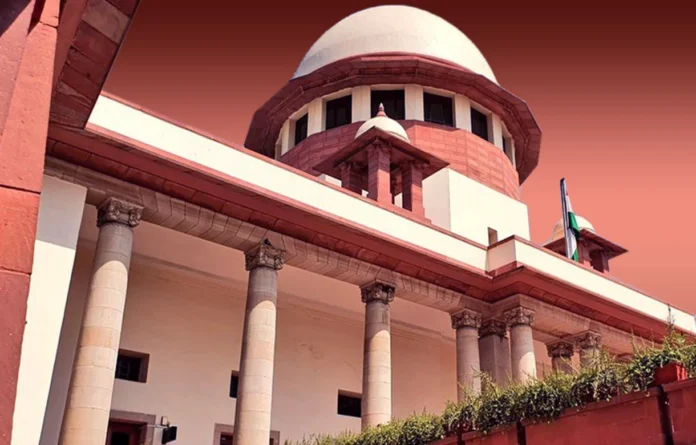The Supreme Court on Monday directed the Commission for Air Quality Management (CAQM) to take a decision either by today or tomorrow, over closure of schools in the national capital region, particularly for class 10 and above.
The Bench of Justice Abhay S Oka and Justice Augustine George Masih observed that since many students did not have air purifiers at home, it did not make much of a difference in air outside and inside their home. Besides, they were not being able to avail mid-day meals.
The Bench passed the order on an application filed by parents of some students seeking reopening of schools.
Appearing for a group of parents, Senior Advocate Meneka Guruswamy said lakhs of students depended on mid-day meals and because of the school closure, the food was no more available to them.
Senior Advocate Gopal Sankaranarayanan opposed the dilution of any measures.
The Bench then asked about children who did not have access to internet.
Sankaranarayanan replied that it was same with cleaners and others who did not have access to.
Highlighting that a number of vehicles were used to ferry school children, Sankaranarayanan urged the Bench to wait a few more days.
The Court nevertheless thought it fit to ask CAQM to relax ban on physical classes.
However, the Bench directed the Commission to consider relaxation in norms after comparing the Air Quality Index (AQI) figures of past few years.
It said far as education was concerned, norms should be in accordance to Stage III of Graded Response Action Plan (GRAP).
Regarding other restrictions in Delhi-NCR, the top court of the country said that unless it was satisfied with the improvement in air quality, it could not reduce other measures under GRAP from level IV to III or II.
The Bench further directed the Commission to initiate action under Section 14 of the CAQM Act 2021 against the officials of Delhi government and Delhi Police for lack of strict implementation of GRAP-IV measures.
The top court of the country observed that the authorities did not make any earnest effort to implement action under clauses 1 to 3 of GRAP IV. Police were only deployed on November 23, which showed a serious lapse on part of the authorities to implement clauses 1 to 3.
The Bench further directed the Commission to ensure that labourers and daily wagers did not suffer because of the continuing restrictions and take mitigating measures under Section 12 of the Act.
The top court of the country passed the order on a case related to air pollution in Delhi and adjoining areas.
The Bench had earlier sought action taken reports from the States of Punjab, Haryana and Uttar Pradesh to curb stubble-burning incidents, which was considered a major reason for air pollution.
It had also ordered strict implementation of Stage IV measures under GRAP to improve the air quality and even ordered the closure of physical classes for school students in Delhi.
In its previous hearing, the Bench had appointed 13 lawyers as ‘Advocate Commissioners’ to examine whether its earlier directives to restrict the entry of trucks from neighbouring areas into the national capital were being properly enforced.
The court commissioners today highlighted the loopholes in enforcement of restrictions on the entry of trucks into the national capital.
They said there was no personnel from Delhi Government transportation wing. Checks were being conducted but their effectiveness was yet to be seen. The Court Commissioners said they reviewed 83 check points and all had some definition of check posts.
Police were deployed on checking duty at few places only after the Supreme Court orders, they added.
Appearing for the Delhi Police, Additional Solicitor General Aishwarya Bhati submitted that when GRAP IV was implemented, an order was issued to man 23 check points.
The Apex Court said it was negligent on part of the Police that other check points were not manned, adding that it would direct prosecution against the Commissioner of Police, Delhi.
It further warned of action against the Delhi government officials for negligence on their part.
Complimenting the Court Commissioners for their work, the Court ordered that they would continue with their assignment and report to the Court.


